Did you know that two out of every three homes in the United States have at least one pet? Dogs are the most popular American pets, followed by cats. Next in line are freshwater fish, although there is a very steep decline in the number of freshwater fish owners compared to those who own dogs and cats. Birds, reptiles, horses, and saltwater fish round out the most popular pets in the U.S.
But then, there is a category of “other” pets. That category can include any number of animals that Americans keep as pets. Rodents, for example, are becoming more popular. These “pocket pets” include gerbils, hamsters, guinea pigs, chinchillas, mice, and even rats. But what if you wanted a different rodent as a pet? Maybe one that wouldn’t exactly qualify as a pocket pet, considering it can grow upwards of 170 pounds! That’s how much a mature capybara can weigh, making it the largest rodent in the world. It is also roughly the weight of a full-grown Saint Bernard!
If you have your heart set on owning one of these semi-aquatic rodents front Central and South America, can you do it legally? The answer depends on where you live. Capybaras are classified as exotic animals in the United States and, as such, are subject to laws that vary considerably from state to state.
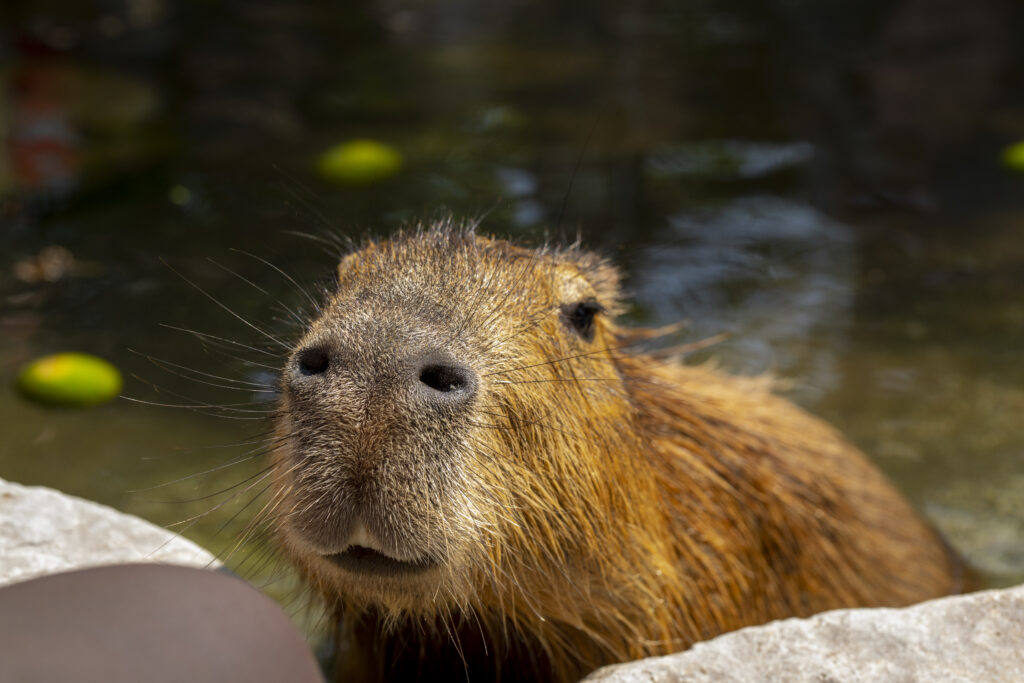
Owning a pet capybara is complicated, and possibly illegal!
©wushoung wang/Shutterstock.com
California
In California, for example, the answer to the capybara question is a resounding “No!” It is not legal for Californians to own capybaras. The rodent is an invasive species in the state. The fear is that capybaras could escape from their homes or enclosures and, as non-native species, do significant damage to the local ecosystem. Capybaras reproduce quickly, so only a few of these rodent escapees could turn into a large problem for the California environment. Any time a non-indigenous animal grows in number, it carries the potential for deleterious effects on native flora and fauna in the area.
California officials also believe capybaras could damage farmland by feeding on crops, as well as damaging agricultural irrigation systems through their burrowing activity.
California is not alone in the capybara ban, though. Nine other states have similar laws. The following states have either implicit or explicit legal bans on capybara ownership.

It is against California law to own a capybara as a pet.
©iStock.com/designer491
Alaska
Alaska has a “clean list” of every approved species that can be owned in the state. If an animal is not on the list, it is illegal to bring it into the state. Capybaras are not included on the clean list, making them automatically illegal.
Colorado
The only exotic animals allowed as pets in Colorado are those deemed safe by the Department of Natural Resources. Capybaras are excluded from that list, meaning they are illegal pets.
Connecticut
According to Connecticut law, capybaras are not included in the list of acceptable pets.
Georgia
Capybaras are explicitly prohibited by the Georgia Department of Natural Resources, classifying them as exotic animals that “may not be held as pets in Georgia.”
Illinois
According to the state wildlife code in Illinois, the Department of Natural Resources restricts “wild mammals, wild birds, and feral livestock that are not defined as protected species… to reduce risks of communicable diseases, nuisances, and damages to wild or domestic species, agricultural crops, property, and environment.”
In other words, capybaras are not legal in the state.
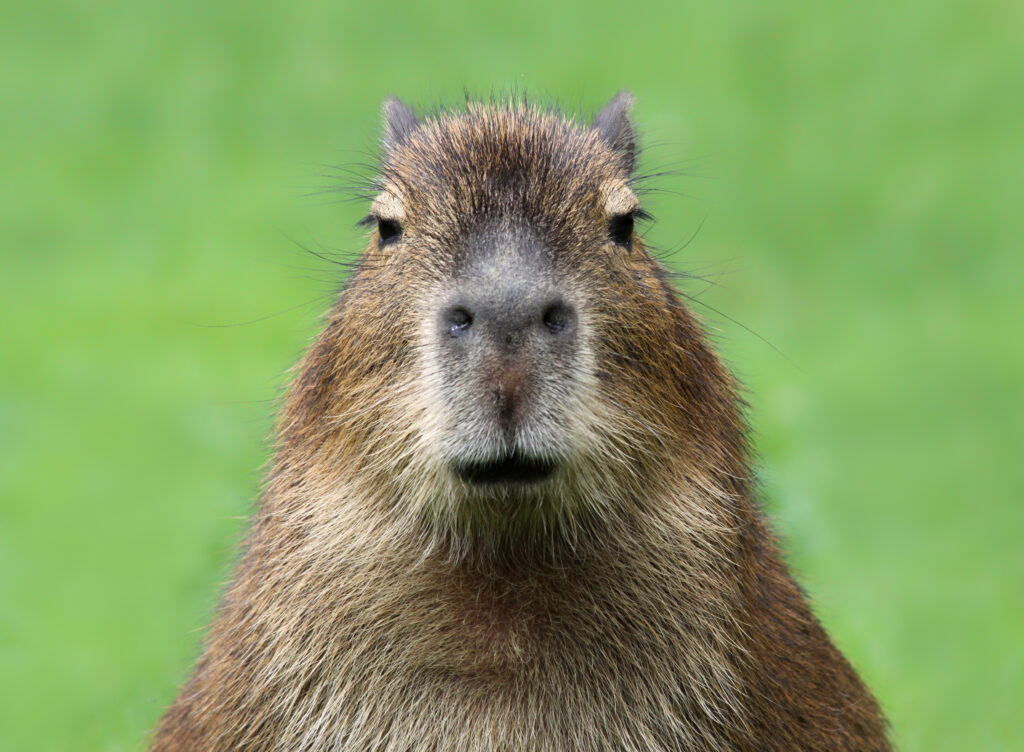
Want to adopt me? Better check your local laws first!
©iStock.com/tane-mahuta
Massachusetts
While owning a capybara in Massachusetts may not be explicitly illegal, the law requires permits for non-domesticated wild animals. Unfortunately, these permits are never issued for capybaras, making it functionally impossible to legally own one of these rodents in the state.
New York
Both New York City and New York State have bans against the possession, transportation, and keeping of any wild species. That includes capybaras.
Oregon
Capybaras are specifically mentioned as a “prohibited species” in Oregon law. Maybe Oregonians don’t want any confusion between capybaras and their official state animal, the beaver. Okay, that’s probably not the reason for the law. Whatever the reason, though, the end result is the same. It’s a hard “no” for these rodents in the Beaver State.
Vermont
Permits are required in Vermont for any type of wild or exotic animal. Those permits are reserved for “bona fide scientific or educational” facilities. Long story short, Vermonters aren’t going to receive permits to keep capybaras, making it impossible to legally own them.
Check Your Local Laws
If your state is not on the above list, it may technically be legal for you to own a pet capybara. It’s important to note, however, that while capybara ownership may be legal in a state, it may still be illegal in a specific municipality within that state. It is the responsibility of each individual to know the specific laws where they reside before obtaining a capybara, or any other exotic animal as a pet.
Permits and Legal Requirements
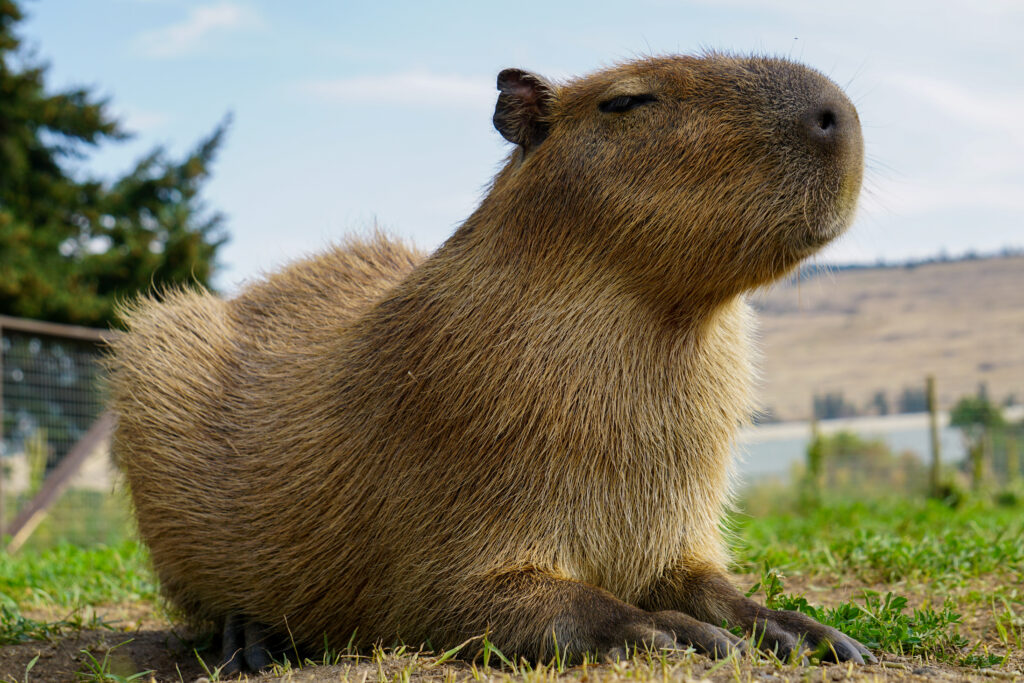
Adorable? Sure! Legal? Better check on that.
©iStock.com/Dave Matchett
If you determine that it is, in fact, legal for you to own the largest rodent in the world as a pet, there are still serious considerations to weigh before obtaining one of these animals. First of all, how do you obtain the proper legal paperwork? Most states will require a permit, health certificate, and/or license for exotic animals such as capybaras.
The legal paperwork and processing is going to look very different from state to state. Game and fish commissions, departments of fish and wildlife or conservation, and other state divisions often process the paperwork and enforce the laws for exotic pets. It can be difficult to determine exactly what permits are needed, along with how and where to obtain them. Take the time to do the necessary research to ensure you are following all the laws, both at the state and local levels.
Okay, You’re Sure It’s Legal. There Are Still More Questions.
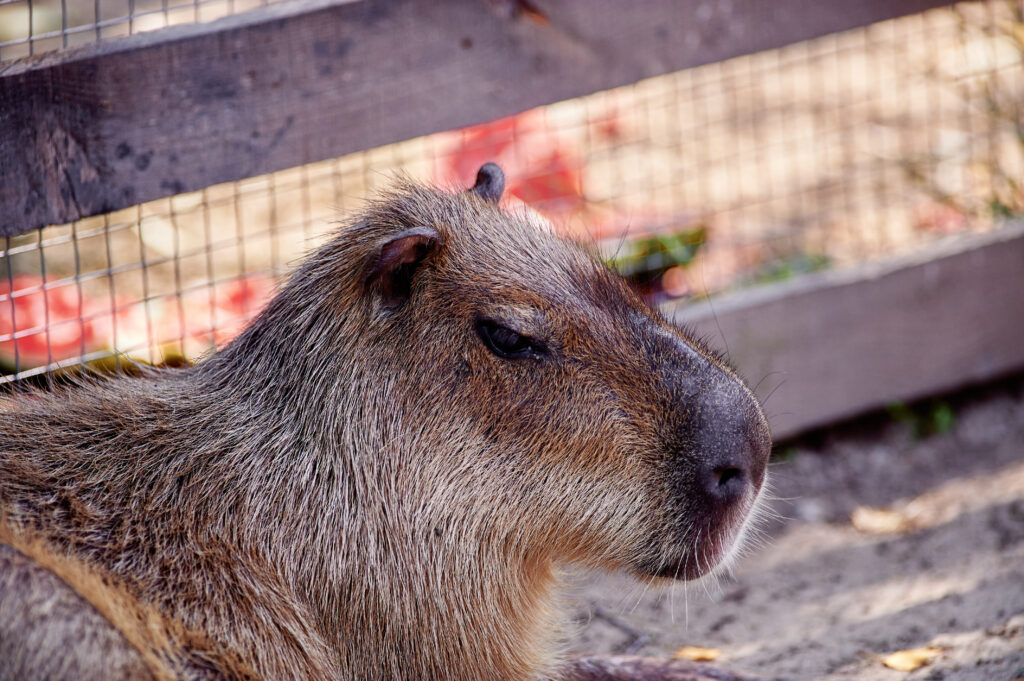
A pet capybara is a huge undertaking.
©iStock.com/Vitleo
Beyond the legality in your state and community, are you sure you can properly care for a capybara? This is by no means an exhaustive list, but have you considered some of these important questions?
Are you ready for the expense and never-ending need to feed a capybara? This animal can grow to 140-180 pounds. The capybara may be in the same family as the guinea pig, but it will cost a lot more to keep a capybara fed! Specialized grasses and hays will be needed in large quantities, along with other food requirements.
Do you have access to water for a capybara? And no, your chlorinated pool doesn’t count. These animals cannot tolerate those chemicals. It will have to be a saltwater pool.
Are you willing to get more than one? Capybaras are social animals and do not thrive on their own. Unless you never leave home, your capybara is going to need a friend…meaning a second capybara! But don’t get two males. That’s just asking for a fight. And a male with a female is asking for a house full of capybara pups.
Are Capybaras Aggressive or Dangerous?
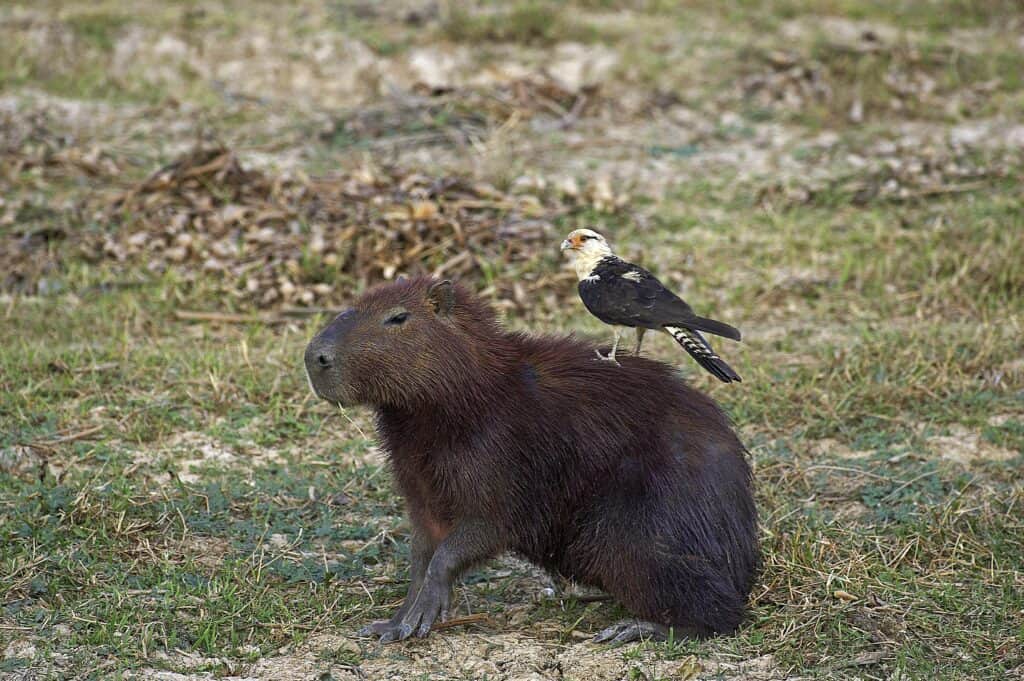
Yellow-headed caracaras often help remove ticks from capybaras in exchange for a free ride.
©iStock.com/slowmotiongli
So, you’ve decided that against all odds, your heart is set on having 2 or more capybaras as pets. So should you be concerned about them behaving in an aggressive manner towards you, your family members, or other pets? The answer is a resounding “no!” Capybaras have a reputation for being some of the friendliest animals in the world. Their temperament is peaceful and docile. They are also very social animals, preferring herds of 10 to 20 when living in the wild. Within their group, they socialize, play, cuddle, and even groom one another.
Female capybaras in particular are compassionate, even to other species. They’ve been known to adopt and foster other baby animals in need of care and nurture them to maturity. They make friends with wild animals like turtles, ducks, birds, and monkeys, and domestic animals like dogs or cats if living in captivity.
Some animals like birds even hitch a ride on the back of a capybara, especially the yellow-headed caracara, which will give back by picking ticks or other bugs from the capybara’s fur. So we reckon that you need not be too concerned with ill-natured capybaras turning your world upside-down if you decide to provide a home for them.
Final Thoughts
That’s just a small sample of the difficult questions connected to capybara ownership. These animals often have a gentle, sweet disposition. And on top of that, they are adorable! It’s understandable why some would consider taking one as a pet. And, in the right circumstances, it can work. But the list of questions to answer before getting a pet capybara is long.
And that list begins with a single, important question: is it even legal where you live? Obtaining the correct answer to that question is often more involved and complicated than it may initially appear.
The photo featured at the top of this post is © iStock.com/Hakase_
Thank you for reading! Have some feedback for us? Contact the AZ Animals editorial team.






